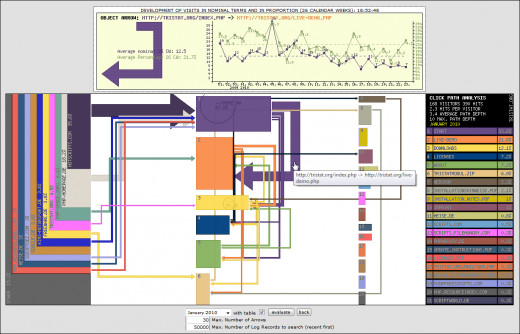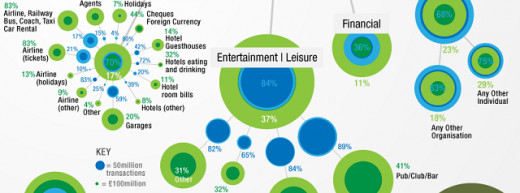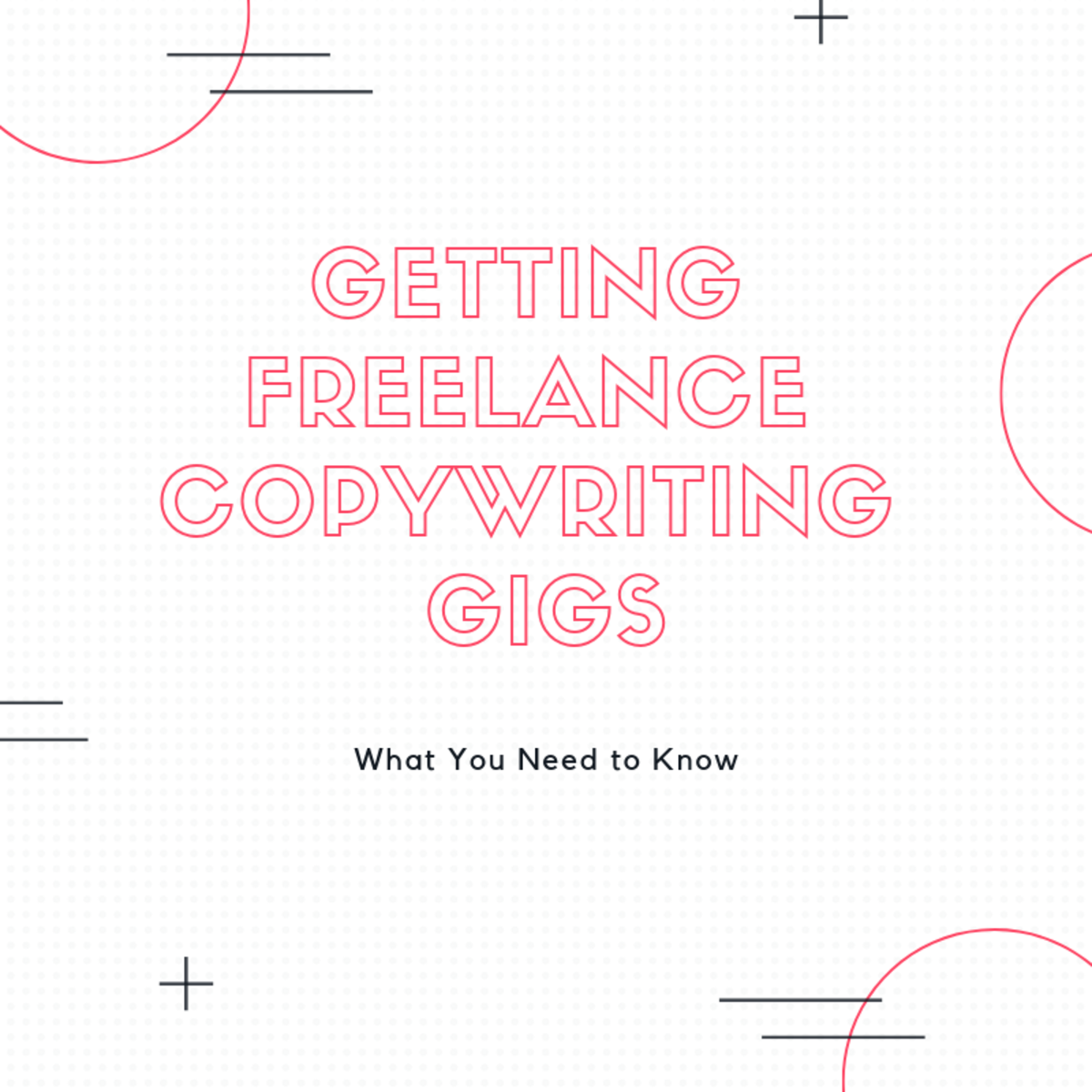- HubPages»
- Books, Literature, and Writing»
- Commercial & Creative Writing»
- Making Money as a Writer
Can I get Paid More for Writing?

Writing for Word-Peddlers
"A dollar a word is the very best you can expect, just like thirty years ago."
The world of writing has changed substantially - but the depiction of it has yet to catch up in the cultural imagination. Gone are the days of the one-dollar words and foreign newspaper divisions. A writer needs to fight for their pay.
Thus, a lot of fresh-faced Freelancers (myself included) wake up to find an exhaustive skill-set they need to develop, if they're going to make a living at their craft.
This article puts some more tools in your shed: methods that help you ball-park what a website, periodical, or publisher can be encouraged to pay you. Basic confidentiality (and the Law) prevents a writer from knowing any one company's financial situation to leverage a deal; but it's still possible to get accurate data on a publication's readership, traffic, and ad revenue - along with gleaning a wider perspective on the industry as a whole.
Here's how to analyze your employer, and find their breaking point in pay.

1. The Website
Our first stop is the periodical or newspaper's online presence, their website. Or more specifically, the meta data about their website.
alexa.com provides a trove of statistics on any website put into their search query; the data isn't terribly accurate but combined with some other information it lands in the ball-park. It gives us a semblance of the kinds of traffic flowing through any one website, which at a glance tells us how much their ad-space is worth.
While Alexa doesn't provide information like Unique or Returning Visitors (its private,) there are other websites which will quickly estimate a site's readership for you. Altogether we discover :
- The website's traffic rank globally and by nation
- The number of links leading into the site
- The percentage of traffic it gets from search engines
- The bounce rate (how many people leave before reading)
- And the average time on site
- The estimated daily/monthly traffic
If it's a large site - the prices for advertisement will be readily available; or you can call the publication and simply ask. But if those options aren't available to you, we can use the website data to estimate the value of their advertising space. Those of us familiar with google adsense or who arrange their own advertising may know how to do this - but for those unaware:
Low Bounce-Rate, high traffic volume, and long duration on the website all raise the value of the publications advertising space. Bounce Rate conveys both quality of the site and its ability to reach its target audience. Volume conveys popularity. And Duration tells us if the audience is held by the material presented to them.
Ad value is what you can sell it for - and the amounts fluctuate every day. But it's safe to assume that if the website is in the top 10% it'll command the high end that day, and the bottom 90% closer to the low-end.
What this all amounts to is an estimate of how much advertising revenue the website is bringing in. The rough edges of the publications budget.

2. Check The Market
Media that is packaged and sold to people has gotten very big and very consolidated. Regardless of who you are pitching your work to, the odds are nine-to-one that they belong to one of the media conglomerates of the Western World.
Companies this large are publicly traded, giving you an important source of information you can use to your advantage as a freelancer: The Annual Report
Have you Checked the Price of Paper?
Keep track of the market price of glossy paper and Newsprint. The price is readily found online and is usually 5% of a company's bottom line.
For the past ten years, newspapers and magazines have been operating at a 10% profit margin, so the cost of paper - which is out of their hands - has a big impact.
The amount publisher's pay for paper fluctuates throughout the year. If the price of paper is going up - then the company you're doing business with will have thinner profit margins and come down harder on compensation. The opposite is also true.
Every company that is publicly traded releases an annual report. It is intended to help investors make decisions, and will contain:
- a statement from the company president
- problems and solutions the company plans to take on
- some numbers summarizing the financial shape of the business.
For example, NewsCorp's 2012 Annual Report talks of shuttering News of the World, while lauding its continued profitability. It talks about future risks as it acquires new properties. It also makes no mention of rolling back expenses.
In contrast, PostMedia's 2012 Annual Report talks about moving more explicitly into digital media, selling off newspapers, and cutting salaries by 4% as it focuses on debt payments.
In other words, one conglomerate is doing well and expanding its reach, while the other just restructured and is continuing to tighten its belt. PostMedia holds Canadian properties and talks about building deep relationships with its audience. NewsCorp holds global properties throughout the english-speaking world and talks about raising the quality of its work.
Which of these two is more likely to have leeway in compensating Freelancers? Does your pitch play into their objectives?
It doesn't do well to read too heavily into the reports; these conglomerates have hundreds of companies within them, all of which operate under their own budgets and management. It does however, give a general idea of the marching orders for that year. Thus we glean the direction and tone that these large corporations (and thus the subsidiaries we do business with,) are taking on. We also see where they are likely to throw money around to reach those objectives.
Yet your editor is gruff; "things are good out in Australia, not here in the U.S." she says; "so what if the budget is back in the black and the big changes are behind us? There's always another change around the corner - we'll need that money to survive the future!"
Well we know they are doing well online from ad estimates - and that the company is fairing well in the market overall, the cost of paper has even stabilized now that all the pulp and paper mills have re-structured. What else can we find out?

3. The Statistics Bureau
Bless the pencil pushers.
If you live in the Western World, I'm happy to inform you that your country's Statistics agency or Census bureau keeps tabs on publishers and periodicals - both their expenses and their revenue. There's even a line that will specifically identify how much the industry is spending on FreeLancers; typically called "non-employee contributors" or some such.
Of course, you can't look at your editors books, but you can see the industry average on things like debt, profit margins, and compensation over time. If things have generally been improving over time - it's going to be very tough for them to say they don't have the funds.
So let's recap: the website is doing well, the company's own report says its doing well, the cost of paper no longer looks like a bear and bull wrestling one another, and the government informs you that - year over year- the industry's been doing alright.
You call up that editor again: "Every piece of info I can find is telling me that your boss has deeper pockets than he's letting on. Heck, with the print-shops closing you should have way more money to spend on content. I demand another eight cents per word."
"I pay you a lick more and then I won't have a job!" Comes her desperate plea. All our freelancers are getting 'x' per word."
Are they?

4. Ask Your Comrades
Now that you have all this data backing you up - the publisher is on the ropes. Bottom line is your piece will make them money, and the negotiation is just a matter of how much they get to keep.
So you turn to your last and very reliable source of information to help you negotiate rights and pay: other contributors. People who are helpfully cited right in the publisher's own product.
Freelancers with some accolades under their belt know that a phone call from you means higher rates for all. They will be happy to tell you whether they are being offered more or less for their work.
It's a chance for them to stop another naive writer from accepting low pay, which otherwise has the effect of dropping the floor of an article's worth. By asking around, you are benefiting the writer you contact as much as yourself.
You ring the editor up one last time: "How could you do this! We love working together! I just found out that Sam is not only making an additional flat fee of $35 per piece - but she only has to sign away 'first-print electronic' and keeps the rest of her copyright!"
There's a long pause, finally she whispers: "thank god. Now I can tell my boss that I had to pay you more or we would've lost the work to someone else. That I tried everything I could! Sorry you had to fight so much for it. 35 cents per word it is."
Either that or she told you to sod off.
At which point you...
Did you find this article helpful?
5. Join a Freelancer's Union
There's no need to fight alone.
Check out the American Freelancers Union and the Canadian Freelancers Union for benefits plans and the 'oomph' to protect your contracts.
Don't trust 'em to do the job?
Maybe Form Your Own Union Instead.
© 2013 Daniel Adaszynski



